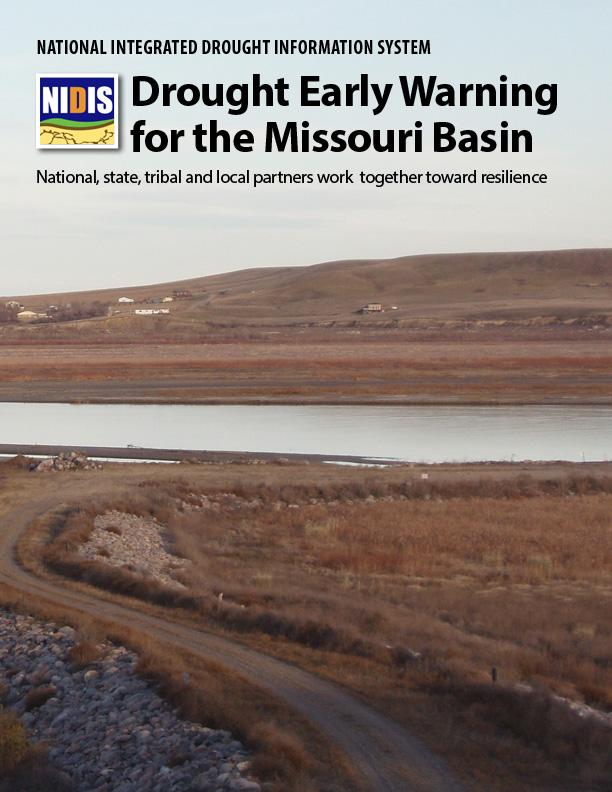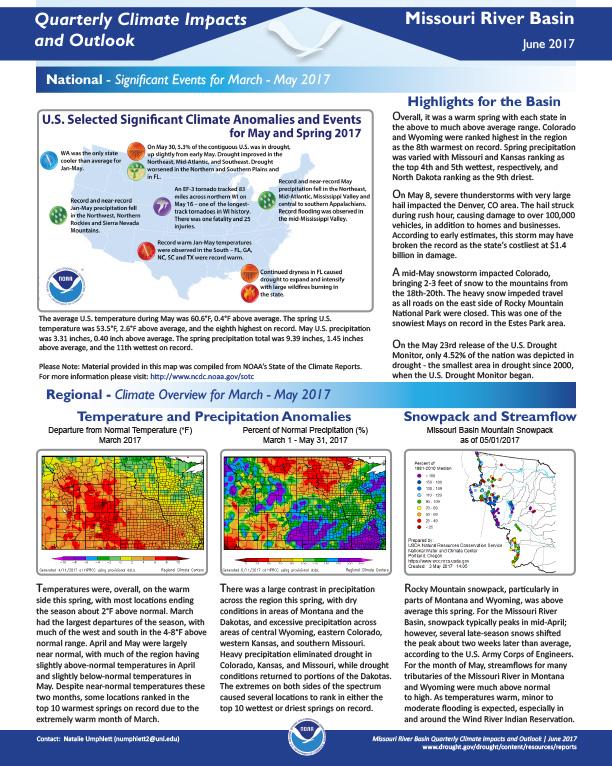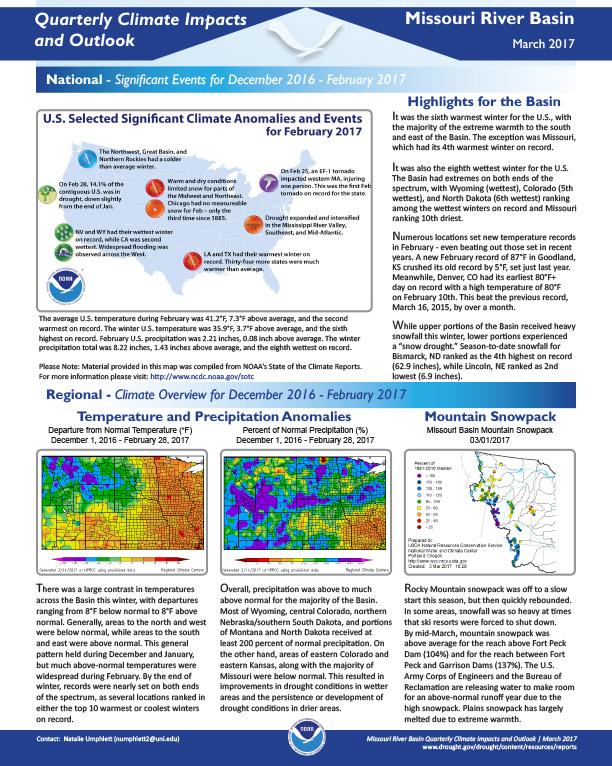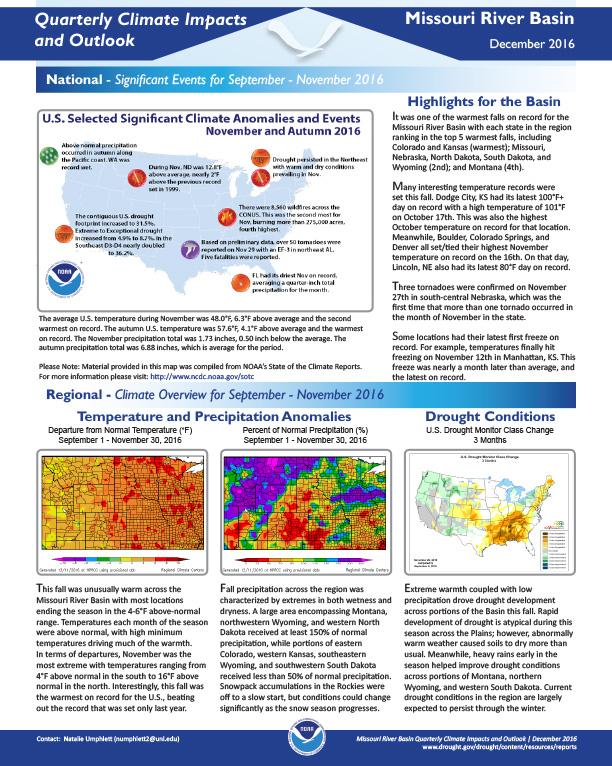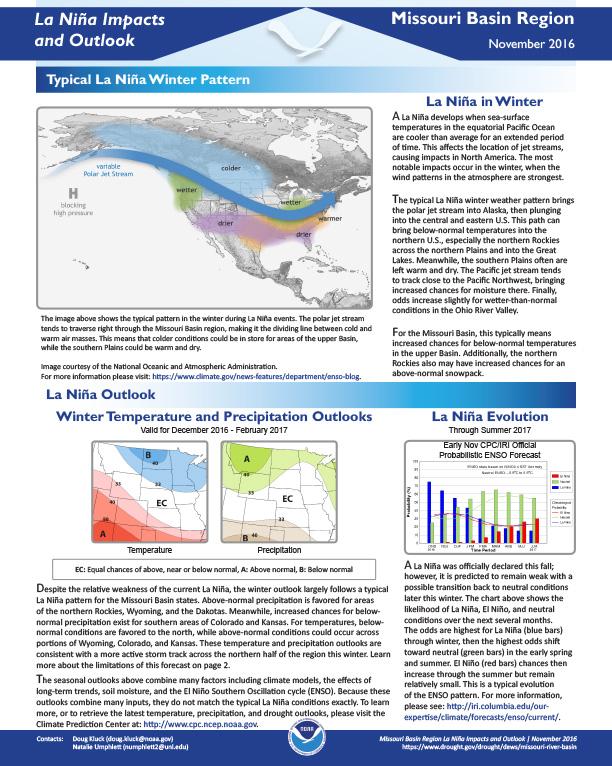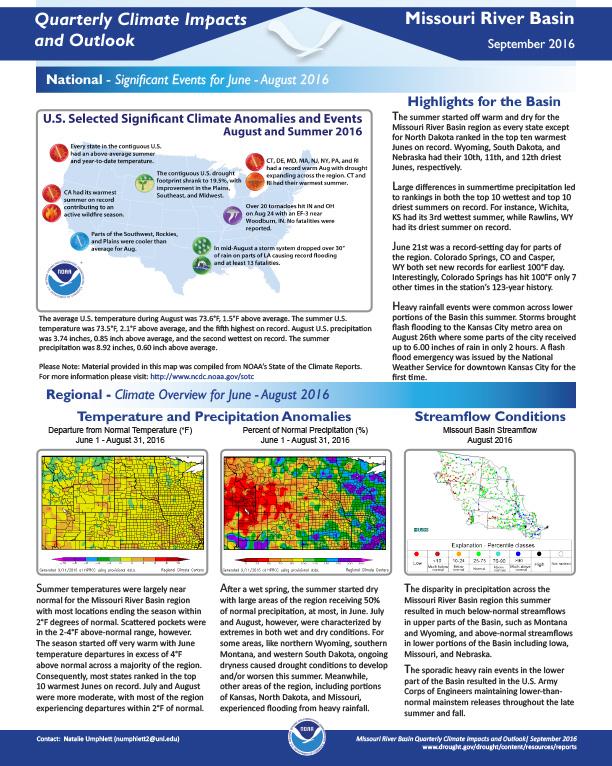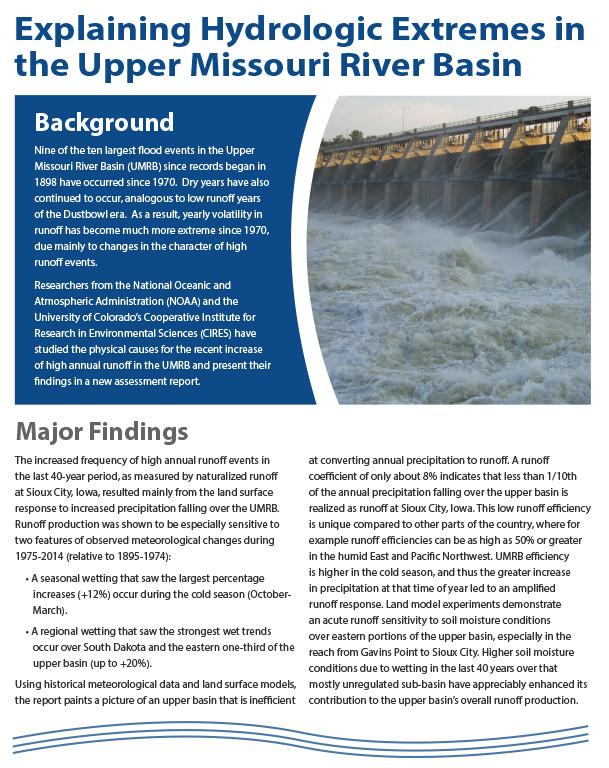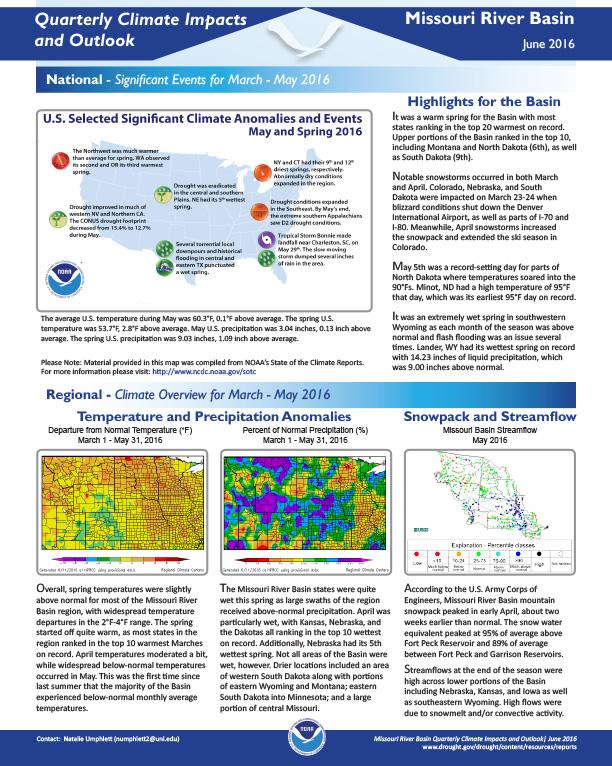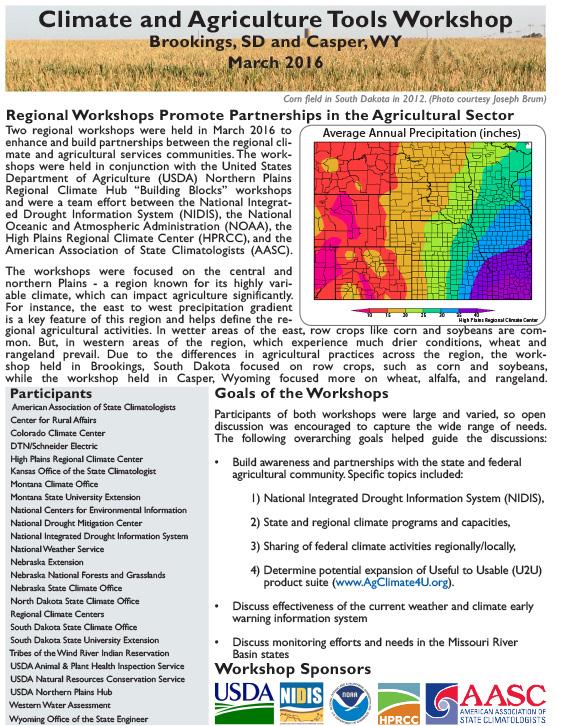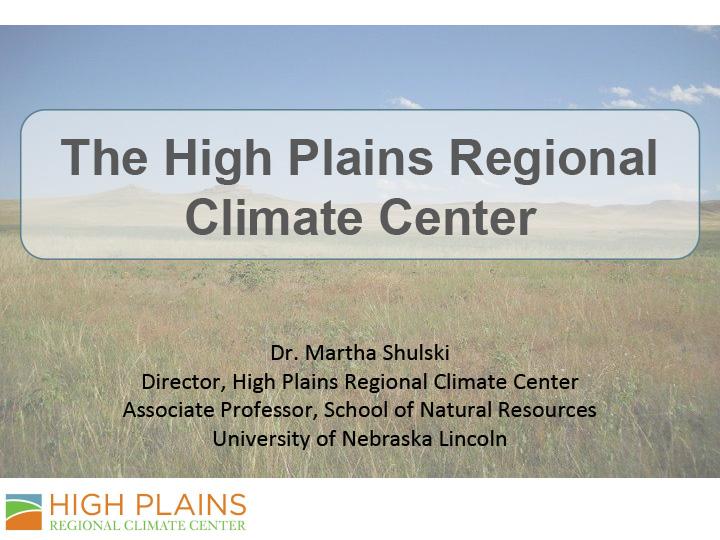This report documents the development of the regional Drought Early Warning System (DEWS) for the Missouri River Basin from 2012 to present, with a focus on the 2014 launch meeting in Nebraska City, Nebraska. Meeting organizers included NIDIS and the National Oceanic and Atmospheric Administration (NOAA), and the National Drought Mitigation Center (NDMC) at the University of Nebraska at Lincoln
Quarterly Climate Impacts and Outlook for the Missouri River Basin March – May 2017. Dated June 2017.
Overall, it was a warm spring with each state in the above to much above average range. Colorado and Wyoming were ranked highest in the region as the 8th warmest on record. Spring precipitation was varied with Missouri and Kansas ranking as the top 4th and 5th wettest, respectively, and North Dakota ranking as the 9th driest.
Quarterly Climate Impacts and Outlook for the Missouri River Basin December 2016 – February 2017. Dated March 2017.
Quarterly Climate Impacts and Outlook for the Missouri River Basin September – November 2016. Dated December 2016.
Defines La Niña; gives outlook for winter temperatures and precipitation; possible effects of La Niña on the Missouri Basin, including agriculture, the economy, and the river itself.
Quarterly Climate Impacts and Outlook for the Missouri River Basin June – August 2016. Dated September 2016.
Two-page summary of the Climate Assessment Report: Causes for Hydrologic Extremes in the Upper Missouri River Basin. The report demonstrates a strong physical connection between the increased frequency of high annual runoff events in the UMRB and the increase in precipitation falling over the upper basin.
Quarterly Climate Impacts and Outlook for the Missouri River Basin March – May 2016. Dated June 2016.
Two-pager describes regional workshops held in March 2016 in Brookings, SD and Casper, WY to enhance and build partnerships between the regional climate and agricultural services communities.
Presentation given at the Extreme Events and Drought Resiliency workshop that took place September 17-18, 2014 in Rapid City, South Dakota. Discusses the work done by the High Plains Regional Climate Center and how they take weather data and turn it into an end product that is usable by stakeholders.


